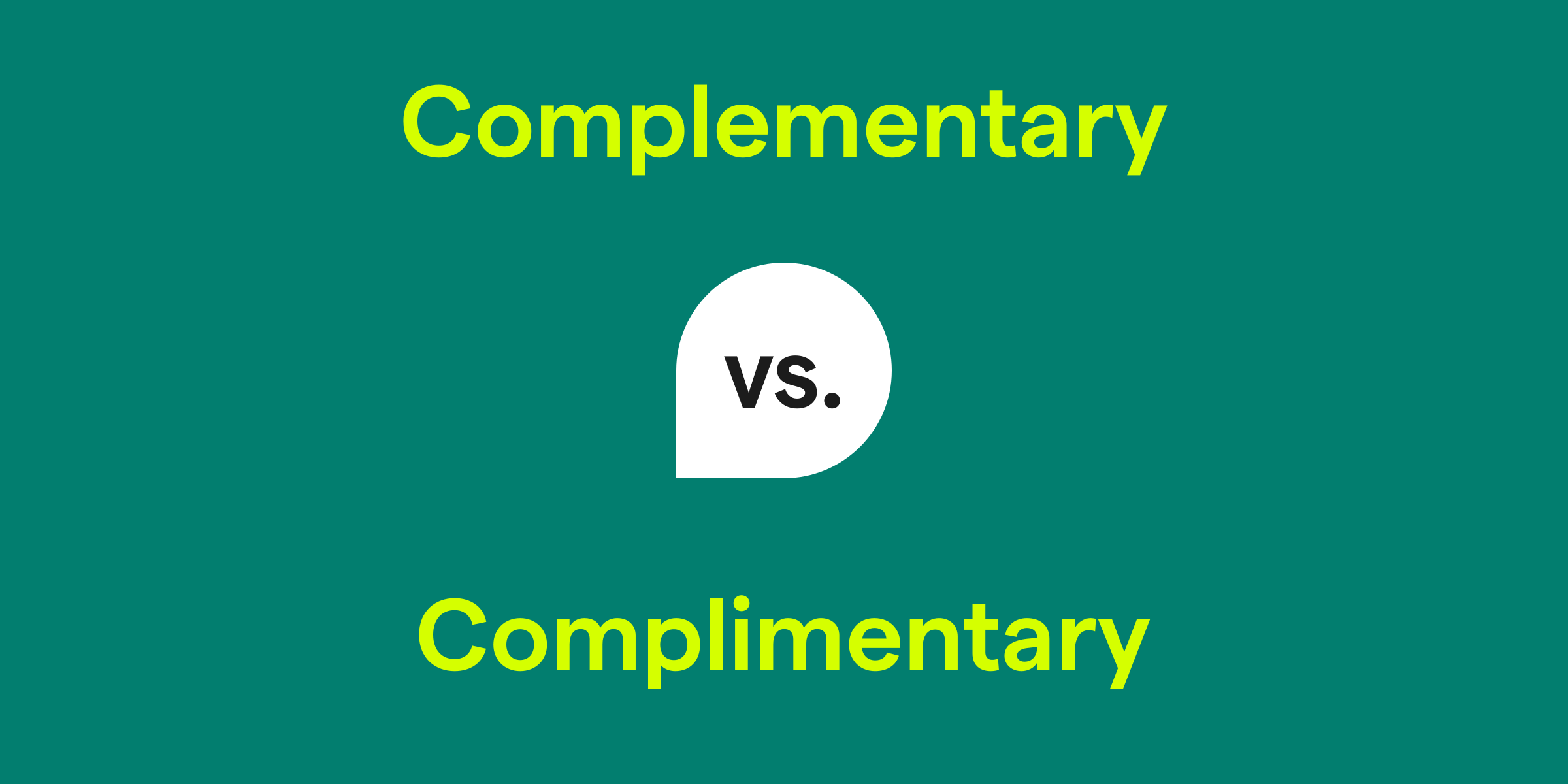Complementary vs. Complimentary: What's the Difference?
Although complementary and complimentary sound similar, they have different meanings. Complementary refers to something that completes or goes well with another, bringing mutual benefits or creating a harmonious whole. Complimentary, on the other hand, pertains to the act of giving praise or free items, such as in "She received complimentary remarks about her work" or "Guests enjoyed a complimentary breakfast."

How do you use the word complementary in a sentence?
Use complementary when you want to describe something that enhances or completes another thing, especially if they form an attractive combination. For instance, you might discuss complementary colors in art, complementary skills in a team, or complementary products in a business partnership.
Examples of complementary in a sentence
- The red scarf was a perfect complementary accessory for her green dress.
- Their skills were complementary, allowing for a successful collaborative project.
- The restaurant offers a daily complementary dish to match the chef's choice appetizer.
How do you use the word complimentary in a sentence?
Complimentary is used when you want to express praise or the act of giving something for free. It can pertain to verbal expressions of admiration or flattery, as well as free services or gifts offered as a courtesy or for promotional purposes.
Examples of complimentary in a sentence
- The hotel guest was thrilled to find a complimentary bottle of champagne in his room.
- She received several complimentary comments on her presentation.
- Attendees of the conference were given complimentary tote bags filled with goodies.
Complementary and complimentary definition, parts of speech, and pronunciation
Complementary definition:
Complementary describes things that complete or enhance each other when brought together, such as colors, skills, or items.
Complementary parts of speech:
Complementary pronunciation:
Phonetically spelled as: /ˌkɒmplɪˈmɛntəri/
Complimentary definition:
Complimentary means expressing praise or being provided at no cost as a gift, courtesy, or favor.
Complimentary parts of speech:
Complimentary pronunciation:
Phonetically spelled as: /ˌkɒmplɪˈmɛntri/
Complementary describes things that complete or enhance each other when brought together, such as colors, skills, or items.
Complementary parts of speech:
- As an adjective: The two singers had complementary voices that harmonized beautifully together.
Complementary pronunciation:
Phonetically spelled as: /ˌkɒmplɪˈmɛntəri/
Complimentary definition:
Complimentary means expressing praise or being provided at no cost as a gift, courtesy, or favor.
Complimentary parts of speech:
- As an adjective: He received a complimentary review of his new book.
Complimentary pronunciation:
Phonetically spelled as: /ˌkɒmplɪˈmɛntri/
Complementary vs. complimentary in a nutshell
To recap, complementary describes items that are well-suited and complete each other, like a jacket and its coordinating scarf. Complimentary, on the other hand, pertains to praise or freebies, like a flattering remark or a free service. Remembering the "e" in complementary as part of "complete" and the "i" in complimentary as part of "give" can help distinguish these commonly confused terms.
Get AI Writing Assistance Wherever You Type
Make sure your vocabulary is on point and every punctuation mark is in the right place, no matter where you’re working. Grammarly works across more than 500,000 websites and apps so you can improve your writing without copying, pasting, or breaking focused.

More Commonly Confused Words
Interest piqued? Pore (not pour) over other commonly confused words to help your writing reach peak (not peek) performance.